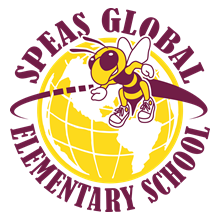Assessments and Testing
North Carolina Early Learning Inventory (NC ELI)
Click the link above for information about NC ELI.
DIBELS are measures that help teachers and schools determine how students are performing on important reading skills. DIBELS stands for Dynamic Indicators of Basic Early Literacy Skills.
Students in Kindergarten – 3rd grade take these assessments in Reading.
Benchmarks are taken three times a year:
Beginning of Year (BOY): Sept.
Middle of Year (MOY): Jan.
End of Year (EOY): May
Progress Monitoring: progress can be monitored on certain probes as often as needed
DIBELS is only tested in English at this time.
WSFCS uses the Spanish version, called Lectura, in Grades K and 1 for our Spanish Dual Language Immersion classrooms. Second grade DLI classrooms are assessed with DIBELS.
iReady was selected by WSFCS from the available options provided by the North Carolina Department of Public Instruction to support the Read to Achieve (RtA) legislation. Enacted by the North Carolina legislature, RtA is designed to ensure that all children in the state of North Carolina master the skills they need to become successful readers.
Students in Kindergarten – 5th grades take these assessments in Reading/English Language Arts
Students in Grades Kindergarten-5th - Also use the math section of iReady for skill practice and diagnostic benchmarks
Benchmarks are taken three times a year:
Beginning of Year (BOY): Sept.
Middle of Year (MOY): Jan.
End of Year (EOY): May
The program and benchmark diagnostics are all taken and worked with online.
Progress Monitoring: progress can be monitored once a month or more often as desired
iReady Reading is only available in English
iReady Math is available in both English and Spanish
WSFCS is continuing to research diagnostic options for Spanish Language Arts assessments for our Spanish Dual Language Immersion classrooms.
Beginning of Grade 3 Reading test (BOG3)
Requirement for the Read to Achieve legislation (G.S. §115C-83.1C)
Will be used to measure teacher growth for determining eligibility to teach summer reading camps, as well as a baseline measure of beginning third-grade students’ reading skills
Tested in the first 11 – 15 days of school (Sept)
The Read to Achieve program is a part of the Excellent Public Schools Act which became law in July of 2012 and was applied to all schools at the beginning of the 2013-2014 school year. The goal of North Carolina is to ensure that every student read at or above grade level by the end of third grade.
End-of-Grade Assessments (EOG)
Given in the last ten days of school
English Language Arts(ELA)/Reading and Mathematics: Grades 3 – 5
Science: Grade 5 only
Currently all online
Multiple choice, open ended, and drag and drop items
